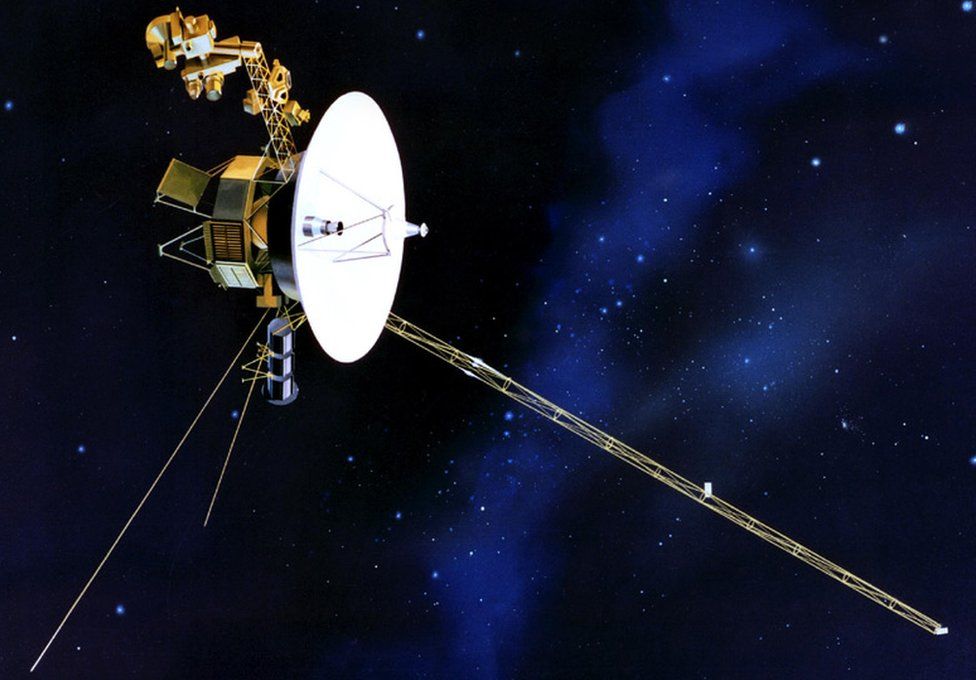 Image source, NASA
Image source, NASA
Voyager 2 has stopped receiving commands or sending data back to Earth
By Andre Rhoden-Paul
BBC News
Nasa has lost contact with its Voyager 2 probe billions of miles away from Earth after mistakenly severing contact with it, the space agency has revealed.
Last month, the spacecraft - exploring space since 1977 - was sent the wrong command, tilting its antenna to point two degrees away from Earth.
As a result, the probe has stopped receiving commands or sending data.
Nasa said it hopes communication will resume when the probe is due to reset in October.
Voyager 2 is more than 12.3 billion miles (19.9 billion km) from Earth, where it is hurtling at an estimated 34,390mph (55,346km/h) through interstellar space - the space between the stars.
Since 21 July, the pioneering probe has been unable to receive commands or send back data to Nasa's Deep Space Network - an array of giant radio antennae across the world - and the spacecraft is not receiving commands from ground controllers.
However, there is hope for the probe, nearly 46 years into its mission.
The space agency said on Monday its huge dish in Australia's capital, Canberra, was trying to detect any stray signals from Voyager 2. It takes more than 18 hours for a signal to reach Earth from so far away.
The antenna will also bombard Voyager 2's area with the correct command, in the hope it makes contact with the probe, said Nasa's Jet Propulsion Laboratory, which manages the Voyager missions.
Otherwise, Voyager 2 is programmed to reset its orientation multiple times each year to keep its antenna pointing at Earth. The next reset is due on 15 October, which Nasa says "should enable communication to resume".
In the meantime, Nasa expects the spacecraft laden with science instruments to remain on its planned trajectory through the universe.
Voyager 2 and its twin Voyager 1 are the only spacecraft ever to operate outside the heliosphere, the protective bubble of particles and magnetic fields generated by the Sun. They reached interstellar space in 2018 and 2012 respectively.
The probes were designed to take advantage of a rare alignment of outer planets, which occurs about every 176 years, to explore Jupiter and Saturn.
Voyager 2 is the only spacecraft ever to fly by Neptune and Uranus, while Voyager 1 is now nearly 15 billion miles away from Earth, making it humanity's most distant spacecraft.
Each spacecraft carries a Golden Record with Earth's sounds, pictures, and messages intended to communicate a story of our world to extra-terrestrials.
Image source, NASA
Image caption,Voyager 2 launched 16 days before its twin, Voyager 1
.png)
 1 year ago
5
1 year ago
5









 English (US) ·
English (US) ·